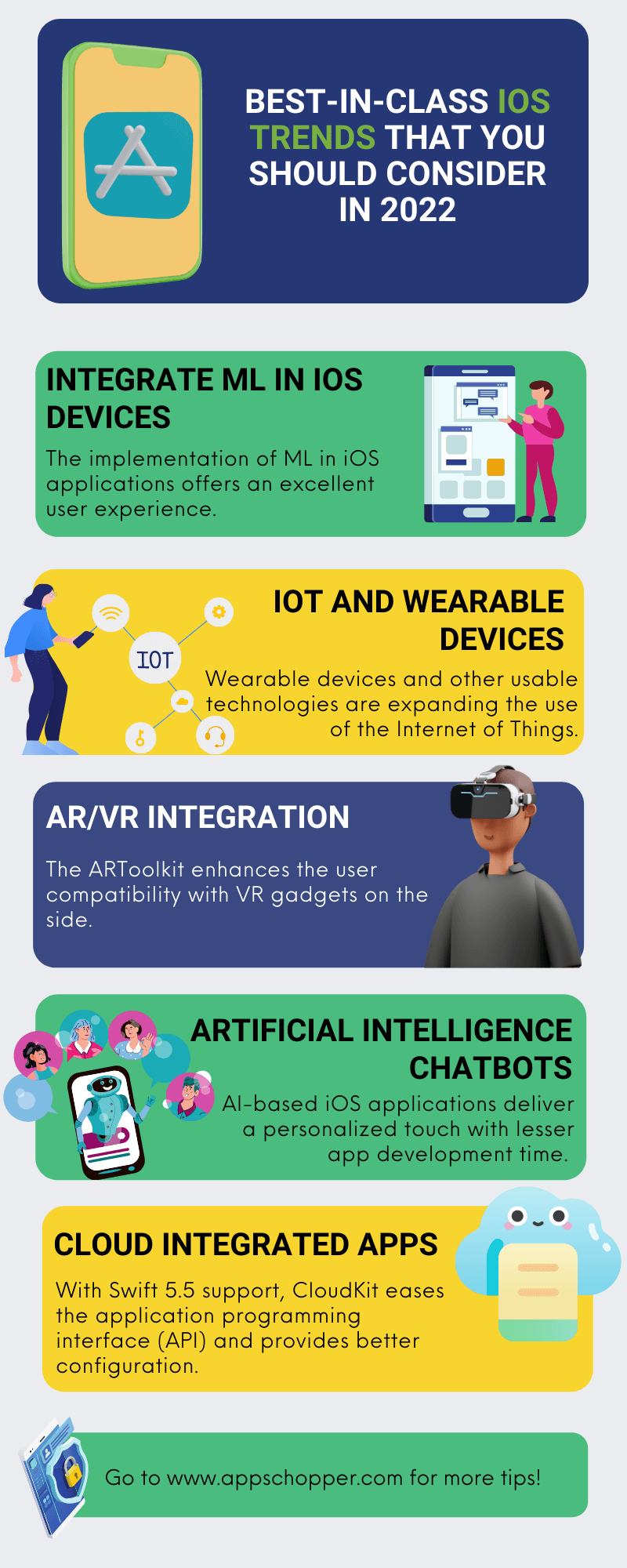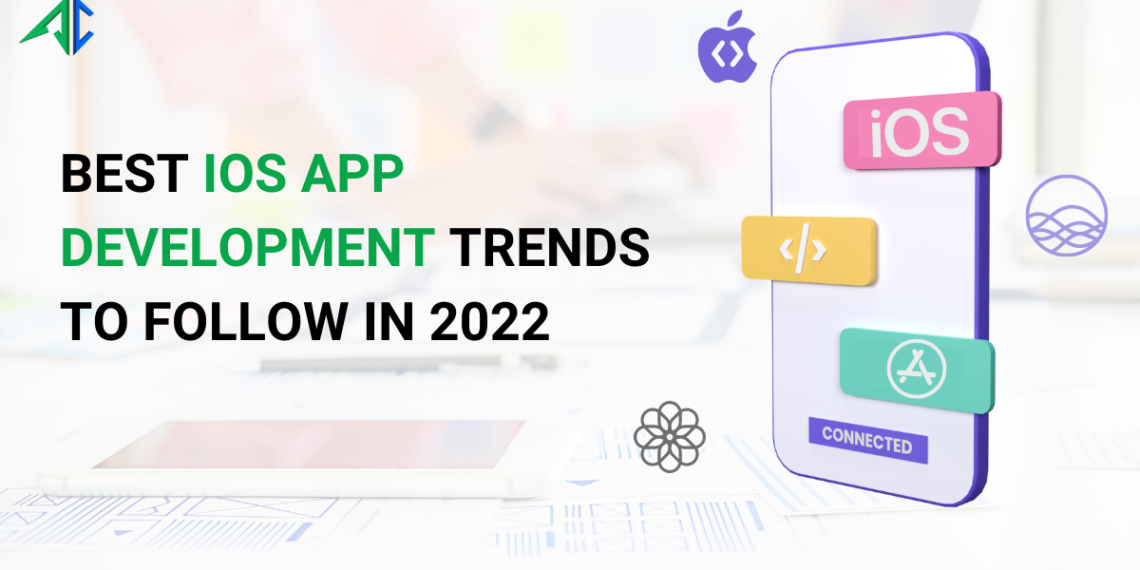Table of Contents
With the latest technological advancement, the mobile industry is witnessing a boom. Thus, several business owners (irrespective of the industry niche) are inclining more and more towards mobile application development.
Mobile phones are not just integrated with essential features in today’s era. But, they are now seen as a pack of modern technologies, like Machine Learning, Artificial Intelligence, AR, VR, wearable devices, and more.
To make it easier for you, we have listed the top 5 iOS development trends that you must follow in order to outshine in the competitive world. But, before moving further, let’s shed light on the importance of iOS app development.
Let’s go!
Why Choose iOS App Development for Your Business?
The continuous deployment of iOS cutting-edge technologies encourages multiple business owners (like you) to hire a well-experienced iOS app development company for a result-oriented application for their business.
The wide array of iOS benefits, like high-quality standards, specified customer base, tech-ready audience, or flawless user experience, is enough to prove its increasing popularity. Right?
According to a report shared by Statista, iOS had 23.4% of the global smartphone market share in the 4th quarter of 2021. Thus, iOS application development should be your forte as it is the most feasible operating system with higher revenue generation, excellent performance, and obviously, security remains the top-notch reason.
That said, iOS app development is what you need to excel in the competitive world as it assists remarkable business growth.
Top 5 iOS Trends That You Should Follow in 2022 for Your Mobile App Development
-

Machine learning is bound to rule the iOS app industry in the forthcoming year. The reason is apparent- more user-friendly, secure, and reliable applications. The core ML provides a quick app performance with ease of Machine Learning models integrating the application with unique features using a few lines of code (LOC).
With a new version of Core ML on iOS devices, personalization and customization will become more feasible. You can add features like object detection in images, video language analysis, sound classification, and more.
-
IoT and Wearable Devices
The Internet of Things will become even more apparent in the future as it will enable Apple devices to easily connect with wearable devices (for example, iWatch) and other appliances for information sharing or transferring. The latest iWatch series has exclusive features, like health sensors integrated with blood sugar or temperature.
iOS has recently launched the newest program called HomeKit, which enhances advanced home accessories compatibility. The HomeKit app will let you control your smart device’s lights using WiFi or Bluetooth or even a virtual assistant like Siri.
-
AR/VR Integration
iOS devices have also embarked on both augmented and virtual reality worlds. AR has an optimized platform known as ARKit 5 that supports face tracking to the ultra-wide camera in iPad Pro that tracks up to 3 faces using the TrueDepth camera.
RealityKit 2, on the other hand, permits you to modify your photos from iPhone or iPad to 3D models with AR optimization with the help of a new object capture API on macOS.
The integration of AR and VR enhances the user experience; for instance, IKEA has an application that lets customers use augmented reality and visualize the items via smartphones to ensure their actual setting.
-
Artificial Intelligence Chatbots
iOS devices are now using AI-based chatbots increasingly with the advent of Artificial Intelligence technology to enhance the user experience. For instance, Starbucks application is a wonderful chatbot example, all thanks to AI, making it easier for users to place an order.
Lark is another AI-powered chatbot example that gives timely advice to users on health improvements, tracking their daily activities, lifestyle routine, and more.
-
Cloud Integrated Apps
Cloud integrated application is now an integral part of iOS devices as it safely transfers the data from your Apple device to the cloud. We all will witness more cloud-based iOS applications in the future because of the excellent user experience.
In other words, the iOS cloud service is the promising iOS application development trend because of its constant improvements. That said, iCloud can store the entire app data, including real-time syncing, feasible sharing, and other services like authentication and server-side storage.
The CloudKit has a Swift 5.5 support that eases the application programming interface (API) and makes it more configurable.
Concluding Words
If you also want to excel in your business in the competitive world of iOS app development, you should follow the trends mentioned above.
Remember that trends never remain the same, and the possibility of changing these trends remains high. Therefore, adhere to the ongoing trends in order to have a high-performing, secure, robust, and reliable application for your business.
Also, make sure iOS app development services delivered by recognized companies remain up-to-date. So, considering them will be worth it.







